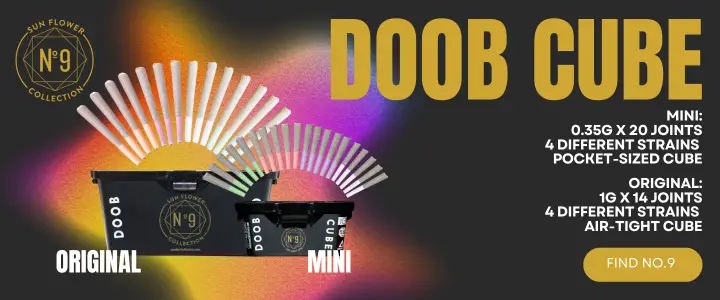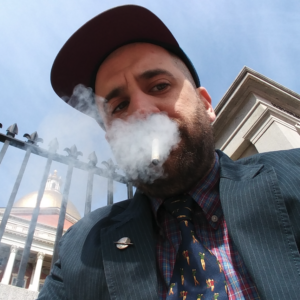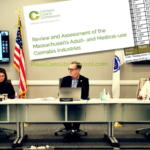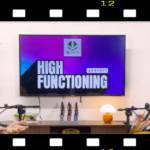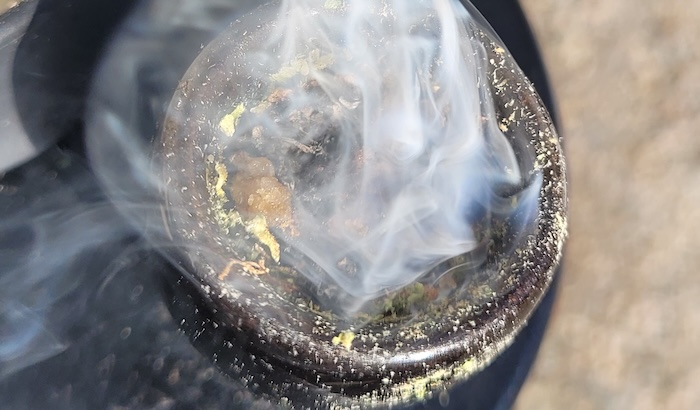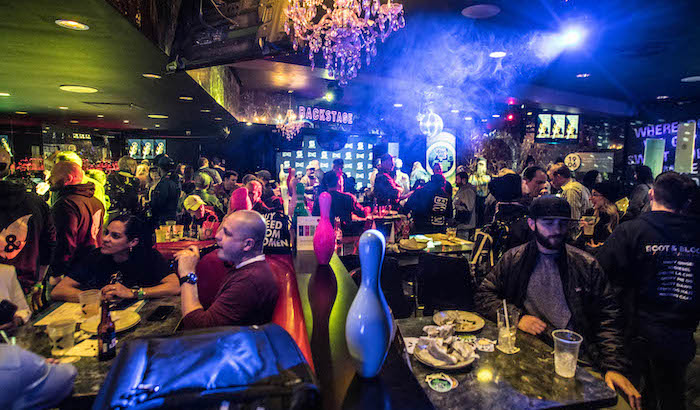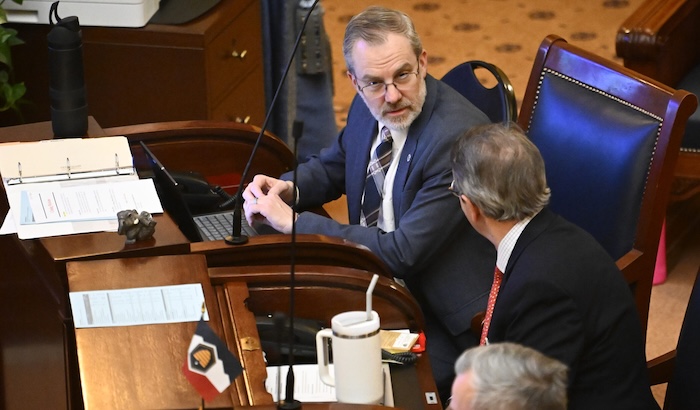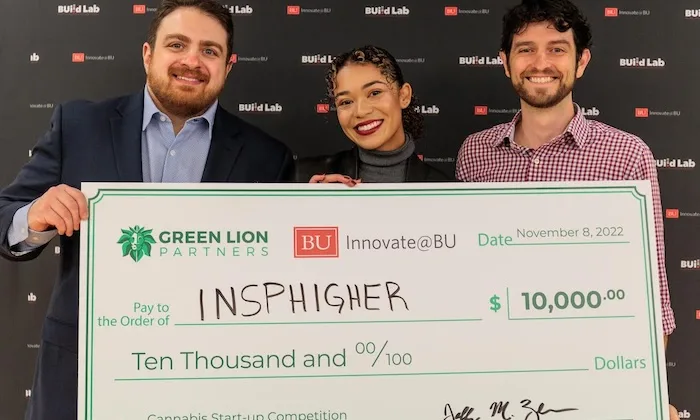
“We hope this competition continues to act as a demonstration that careers can be built within the cannabis industry and that entrepreneurs can be successful in the space.”
No one could accuse Boston University of jumping on the cannabis bandwagon late in the game. On the contrary, the school’s Innovate@BU program started partnering with the BU alumni-founders of the Denver-based Green Lion Partners on an annual cannabiz competition before the first legal adult-use joint was sold in Mass.
Since 2017, Green Lion, a Denver-based cannabis business strategy firm, has helped weed out startup seeds that may not be ready for prime time while elevating stars via consulting and a $10,000 grand prize. Past winners include the South Boston-based Annaboto, “an AI-driven, robotic growing machine which enables you to become a sophisticated farmer with minimal effort.”
The contest is open to BU alums, and is now in its seventh year of helping the development of “innovative cannabis-ancillary companies.” Applications closed on Oct. 8, and the winners will present their pitch decks and ideas at the Rajen Kilachand Center on campus on Nov. 7.
We asked Innovate@BU Executive Director Siobhan Dullea and Green Lion Founder Jeff Zucker about what it’s been like to watch the competition morph and adapt over time.
It’s crazy how this has been going on for seven years. What’s it like for a university program to be part of the original guard when it comes to Massachusetts cannabis?
SD: Many people have jobs that didn’t exist when they attended university. Innovate@BU looks for emerging technologies and industries so students can understand their career potential beyond what is available today. Seven years ago, the cannabis industry was emerging. The first competition was meant to show that working with cannabis provides a true career opportunity for students as much as it was to find innovation. We think it helped bring legitimacy to the cannabis industry. Seeing similar competitions pop up at other institutions has given us additional confidence in the value of what we brought to the community. This competition would not have happened without the thought leadership and partnership of Green Lion Partners founded and led by BU alum Jeff Zucker and Mike Bologna.
What were most of the pitches mostly like in the early days? What were some trends?
JZ: The biggest difference between applications now, and in the early days is that initially even the idea of having a cannabis, composite competition was a little bit exciting and sexy, but as the years have gone on, and cannabis, has fortunately become more normalized, we’ve started to see fewer, but more focused applications. The first years we would sometimes get applications that were clearly just ideas they came up with to enter, and now we are mostly seeing things that have already had extensive work put into them by people who are really dedicated.
What’s an example or two of some early applicants that really stood out?
SD: Despite not winning the competition, Hyasynth Bio really stood out in year one. They use yeast to grow artificial cannabinoids (the chemical compounds in the cannabis plant) and have gone on to raise millions of dollars.
Has the mission or idea behind the competition changed over the years?
SD: The mission hasn’t really changed over the years, although the industry has. We continue to work to remove stigma from the cannabis plant and the activities surrounding it, and we hope this competition continues to act as a demonstration that careers can be built within the cannabis industry and that entrepreneurs can be successful in the space.

Are there any standout success stories that have come out of the competition? Or entrepreneurs who have come back to help out?
JZ: Fortunately, there are some standout success stories from the competitions. The first company that comes to mind is 2019 finalist and 2021 winner Boundless Robotics, founded by Carl Palme, who created the Annaoboto device that allows individuals to easily grow cannabis in their homes using hardware that combines machine learning and AI, among other resources, to make the process simple and elegant. Carl has successfully raised funds and is continuing to grow the business, and, additionally, for the last two competitions, he has mentored teams in the finals to help them prepare for the pitch event and even act as a last-minute fill-in judge in the 2022 competition. Carl is a huge asset to this competition and the cannabis and BU communities.
Additionally, Dr. Marion McNabb, who won our first competition and has since become a true force in the Massachusetts cannabis industry and beyond. She runs the Cannabis Center of Excellence, a registered 501c3 nonprofit organization that conducts citizen-science focused population studies and programs in the areas of community engagement, medical cannabis, adult-use cannabis, and social justice in the cannabis industry. Marion has also become a mentor the last few years for teams in the competition finals.
What’s the main purpose that your team sees the competition as serving these days?
SD: At Innovate@BU, we continue to help students see opportunities for innovation across sectors and fields of study. Green Lion Partners founders Jeff Zucker and Mike Bologna are BU alums and champions of the cannabis industry. This competition helps link them to student innovators and continues to build legitimacy of the cannabis industry by showcasing the opportunities it provides to the BU community.
JZ: We get to meet some incredible people, especially in the Massachusetts cannabis ecosystem, and it continues to add value to our company in many ways.
Are there any themes you are seeing coming up in a few pitches this year?
SD: This year‘s finalists are heavily technology focused, and we are seeing more technical entrepreneurs generally getting engaged with the cannabis industry as the issues that need to be solved become clearer with industry maturity.
What do you see as the legacy of the competition moving forward?
SD: In terms of the legacy of the competition, we hope that, regardless of how many years we end up doing this for, that it stands as a call back for BU to the confidence they showed in the industry early and the support that they gave to people who believed in it, and to advocacy organizations working to end the war on drugs. Additionally, I hope we continue to see more and more competitions like this in a variety of industries at educational institutions, as we feel that entrepreneurship is an incredible way to invigorate individuals around an industry or goal. Lastly, we hope the competition is remembered as something that not only looked at the business of cannabis, but also the importance of businesses engaged in the industry giving back to the community, continuing in advocacy, and working to end the injustices in current drug policy.
bu.edu/innovate/signature-programs/cannabis-startup-competition/


